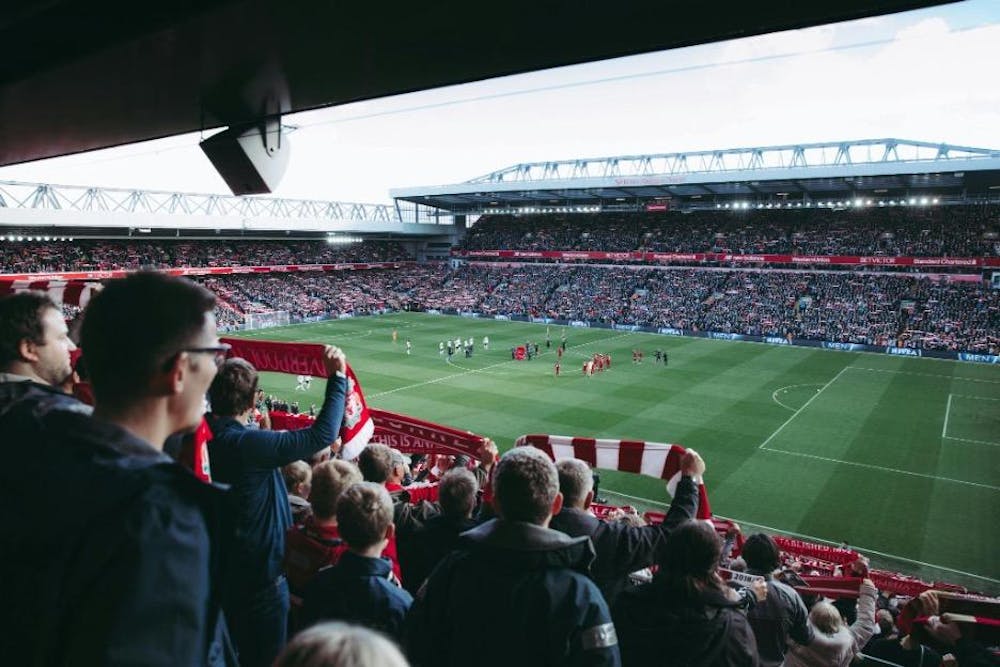Photo by Tembela Bohle on Pexels
European football, or soccer as it is known in the United States, transcends the mere concept of competition; it forms a cultural heritage and phenomenon that unites people globally, despite borders and differences in generations. It’s not only in winning a match but also the story of the game featuring strategies and feelings that capture the attention of even those who aren’t sports fans. The tactics and passion involved in the game is a subtle demonstration that in the end it isn’t just a game, but a true mirror of human existence itself. From the roar of the crowd to the deaf silence in the face of a heartbreaking loss, football captures the wide range of human experiences and emotions, on a canvas that propels people to achieve their dreams while creating legacies. In this article, we’ll unravel the symbiotic connection between football tactics and emotional feelings that have been presented throughout every single football field.
The role of football strategies
Football tactics represent the game’s success plan or blueprint. These indicate different layers of roles and responsibilities where each teammate has to be alert and utilize tactics to outwit opponents and achieve team goals. As for the exemplary plays that focus on tactics, there’s no doubt that strategies are the cornerstone of a winning football team. While you focus on understanding football strategies, it’s important not to neglect your work as an educator, student, writer, or content creator. Thus, to ensure that your work is original amidst all the excitement and fun, you can do a quick, but detailed and precise, plagiarism check based on advanced technology to avoid related issues.
Offensive strategies
Offensive positions are like a type of counter-attacking and holding playing style in which teams use different tactics to gain the upper hand. The target positioning of the matched teams, particularly possession-based football that was popularized by Barcelona under Pep Guardiola, promoted incrementally precise soccer ball control and methodical polish of the quick attacks to tear down the defenses. On the contrary, counter-attacking tactics are rapidly changing the situation from defensive to offensive and successfully use the opponent’s gaps through this aspect. Intense pressure strategies in the pitch, which is a prime example of Jurgen Klopp's Liverpool, strives to disrupt the opposition’s build-up play by exerting relentless pressure in their half.
Defensive strategies
Taking it to defend, squads are equipped with regular formations for the purpose of denying the attacks of the opponent. In the past, it was typically the classical back four as the defensive strategy but these days we see a lot of varieties including three at the back tactic, developed to counter the strengths of opponents’ attackers. Implementing a high-pressure game, which makes opponents' play unpredictable and prone to mistakes, while a good team defending in set-pieces at the crucial times can clinch victory for you or deny defeat to your side in closely fought matches.
Psychological impact of strategies
Beyond the tactical sphere, the football strategies not only hold a huge psychological sway over the particular players, but also the teams. Amongst many things, teams that play well according to a well-timed, well-thought out and drilled game plan will tend to generate both a sense of confidence and momentum and will find its way towards victory. But the same way, achievements sometimes bring new challenges, and the mental power tests may become harder even for the best experts after many consecutive failures. Agility and the ability to control the game even when it appears to be going the wrong way are critical traits for football players to have when it comes to the emotionally charged match.
Emotions on the field
The frowns or smiles of the football field decide people's emotions. The athletes might go into ecstasy or dip into the crevice of the chasm. The differently intense encounter of matches produces adrenaline-filled performances, which expose the passions of every player through the fortunate tackles, passes and goals. That jubilant spirit lights the burner of a team ethos, rekindling the bonds that cannot be moved by the lines of the field. However, for every victory there’s an opposite side of the medal-division and failures, and these situations not only challenge athletes but also fans as they follow and identify with the sport.
Emotional intelligence in football
The impact of emotional intelligence on football is so strong that it’s responsible for the winning of many teams, both on the pitch and in general. Emotional awareness, control and usage during matches is an essential skill that’ll allow you to keep your calm and make good under-the-pressure choices. The players get exposed to a chaotic circle of emotions from the adrenaline rush of games to the aggravation of the meaningless events but all the time they have to stay focused on the job now. Emotionally intelligent players own a capacity to take over their emotions and turn them into energy which is adequately channeled in a constructive way rather than getting distracted by impulsive reactions. In this scenario, the coaches are extremely relevant in ensuring that a team maintains high emotional intelligence levels and coaches dynamically provide the tools and guidance that helps the players to develop the necessary resilience and control to cope with the pressure that comes with a highly competitive environment.
Case studies of famous matches
A football history is written in many pages and everywhere there are contests that show how planning and emotions interweave to create the simple yet rich battles in which the best teams win. In this way, we have the big ups and downs, from exciting comebacks to gripping defeats, which bring us the feeling of this beautiful game. For instance, just take a look at the historic Champions League final where Liverpool made a tremendous comeback from a 3-goal deficit against AC Milan. This move from Liverpool showed their guts and the team spirit that resulted in the team lifting the trophy.
The coach's influence
A triumphant team will always have a coach who isn’t only passionate but also a visionary, who not only paces the field but also has exquisite coaching skills that go beyond the field. The role of the coach is to figure out plans that help his players condition their game to the highest level, and in addition, control his emotions and mindset during the matches. Propelling the coaching process is effective communication and motivation. They are the tools of the trade for trainers who look to navigate the challenging waters of football's complex psychology.
Unveil the heartbeat of the beautiful game, football!
The intensity of football competitions, where tactics and emotions integrate and unleash to form an altogether different and a unique festivity of sorts. Teams rival each other with the grace of their tactical maneuver and passion. In the end, it’s the emotional aspect that unites everyone, from players to fans, around the world. The performance or nonexistence in the highlighted strategies is a sign that is best known for establishing a strong bond between teams that hold each other on emotional ties, which consequently define the game.





